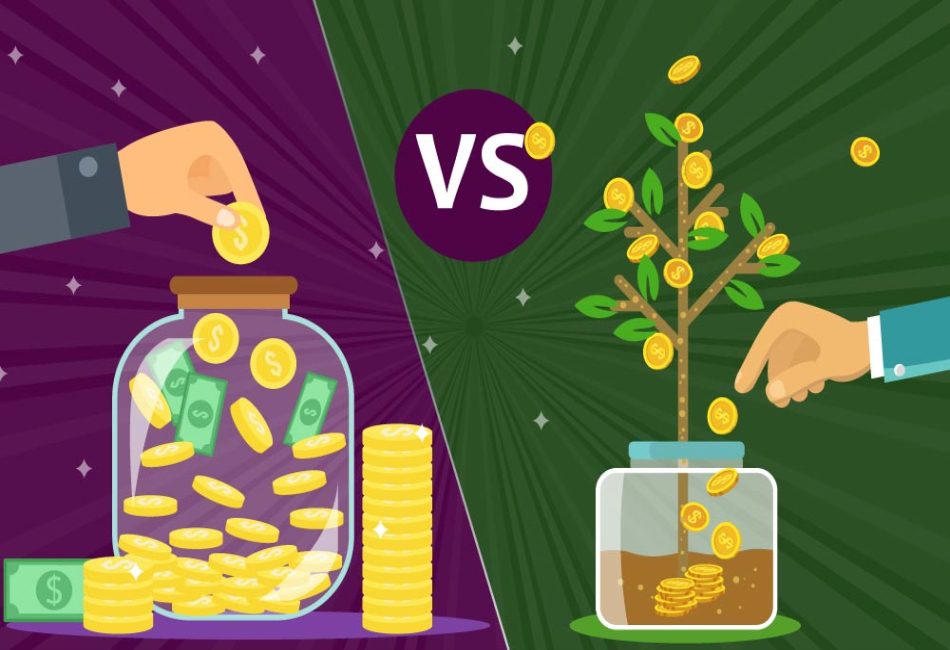Saving and investing are two essential strategies for achieving financial security. Whether you should focus on saving or investing depends on your financial goals, risk tolerance, and current financial situation. In this article, we will explore the differences between saving and investing, discuss when each strategy is most appropriate, and address the common concern of having debt.
Debt and Saving or Investing
One common concern when deciding between saving and investing is having debt. It’s important to prioritize paying off high-interest debt, such as credit card debt or payday loans, before considering investing. This is because the interest rates on debt are often higher than the potential returns you can earn from investments.
However, as the Bills.com review of Freedom Debt Relief reveals, not all debt is created equal. If you have low-interest debt, such as a mortgage or student loans, it may be more advantageous to invest rather than paying off the debt aggressively. In such cases, the potential returns from investments could exceed the interest you’re paying on the debt.
Understanding Saving and Investing
Saving and investing both involve setting aside money for the future, but they differ in how the funds are held. Saving typically means setting aside cash in a bank account or other liquid assets that can be easily accessed when needed. To optimize this strategy, explore the offerings of the best banks in America. Choosing reputable bank not only ensures the security of your funds but also adds a potential for growth, enhancing the dynamics of your financial safety net. It is a conservative approach that aims to preserve capital and provide a financial safety net.
On the other hand, investing involves using your money to purchase assets such as stocks, bonds, real estate, or businesses. The goal of investing is to generate a return on your capital over time. This return can come in the form of capital appreciation (the value of your assets increasing) or income (such as dividends or interest payments).
Determining When to Save
Saving is particularly important for short-term goals or emergencies. If you’re planning to make a major purchase in the near future, such as buying a car or a home, saving can help you accumulate the necessary funds. It also provides a cushion for unexpected expenses, like medical bills or home repairs.
Saving is generally considered low-risk since the funds are typically held in bank accounts or other safe investments. While the returns may be modest, the principal amount is preserved. It is advisable to save at least three to six months’ worth of living expenses as an emergency fund before considering investing.
When to Consider Investing
Investing is typically suitable for long-term financial goals, such as retirement or funding your children’s education. By investing, you have the potential to grow your wealth over time and outpace inflation. However, investing involves risk, and the value of your investments can fluctuate.
To invest successfully, it is crucial to have a long-term perspective and a diversified portfolio. Diversification means spreading your investments across different asset classes, such as stocks, bonds, and real estate, to reduce risk. It’s also important to research and understand the investments you’re considering or seek the advice of a financial professional.
Finding the Right Balance
The decision to save or invest should be based on your individual financial goals, risk tolerance, and current financial situation. A balanced approach that combines saving and investing is often the most effective strategy. By saving, you create a financial safety net and have funds readily available for short-term goals or emergencies. By investing, you have the opportunity to grow your wealth over the long term and achieve your financial goals.
Ultimately, the choice between saving and investing is a personal one that depends on your circumstances and priorities. It’s essential to evaluate your financial situation regularly and make adjustments as needed. Consulting with a financial advisor can provide valuable guidance tailored to your specific needs.
Should You be Investing or Saving?
The answer lies in understanding your goals and financial situation. Saving provides stability and a safety net, while investing offers the potential for growth. By evaluating your priorities and seeking professional advice, you can make informed decisions that align with your long-term financial aspirations.
In conclusion, both saving and investing are valuable strategies for achieving financial security. Saving is suitable for short-term goals and emergencies, while investing is ideal for long-term wealth accumulation. The decision to save or invest should consider factors such as financial goals, risk tolerance, and current debt. By finding the right balance between saving and investing, you can set yourself on a path towards a secure financial future.

